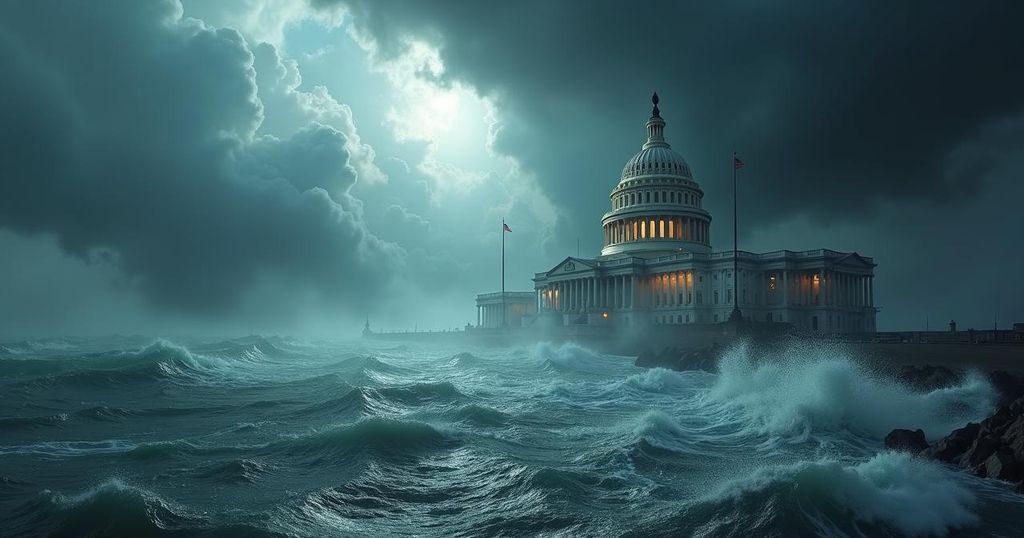Hurricane Milton: A Squall in the Midst of Political Turbulence
Hurricane Milton was less devastating than expected, prompting debate on the Biden administration’s warnings against the backdrop of misinformation from Donald Trump. Minimal damage was observed across several coastal areas in Florida, and the situation reflects ongoing tensions in American politics as the nation approaches an election.
Hurricane Milton, which recently impacted Florida, was significantly less destructive than anticipated, sparking conversation regarding the potential over-caution exhibited by the Biden administration in response to earlier misinformation campaigns led by Donald Trump and his allies. As I traveled north along Florida’s west coast from Fort Myers, I observed that various areas had been designated evacuation zones in anticipation of what was billed as a once-in-a-generation storm. Meteorologists expressed concern about the storm’s erratic behavior, particularly as it wobbled north and south prior to landfall. Fortunately, Milton weakened from a category 5 to a category 3 hurricane, which mitigated wind-related damages, though worries persisted about storm surges inundating low-lying regions. Our initial stop at Punta Gorda showcased overturned boats in the marina yet no significant structural damage. Similarly, throughout the coastal highway passing through Venice, minimal destruction was evident despite debris such as palm fronds and dislodged tiles scattered across the streets. At Casey Key, which was accessible only via bridges, the National Guard and local law enforcement conducted house-to-house checks to ensure residents were safe, as storm surges entered some homes but were significantly lower than expected. In St. Petersburg, the emphasis remained on assessing damages around the Tropicana Field stadium, which was repurposed for emergency workers amidst a ravaged roof. Although many citizens adhered to evacuation advisories, contributing to lower casualty outcomes, there remains a palpable concern that the severity of the pre-storm warnings may be perceived as exaggerated. Some residents suggested that politicians and the media bore responsibility for heightening fears unnecessarily. This raises pertinent questions regarding the motivations behind the government’s response: Were the inflated warnings a necessary measure to counteract extensive disinformation following Hurricane Helene? It is alarming that prominent figures, such as Georgia Congresswoman Marjorie Taylor Greene, have propagated unfounded claims regarding governmental control over weather phenomena, with FEMA Administrator branding such conspiracy theories as unprecedented in severity. As Hurricane Milton underscores the perilous convergence of environmental disasters and political discourse, it is becoming evident that the storm of American politics is far from abating, especially with the election looming on the horizon.
In the face of Hurricane Milton’s approach, extensive pre-storm warnings and evacuation measures were implemented along Florida’s west coast. This article explores the responses of local authorities, the public’s perception of government alerts, and the political implications stemming from past hurricane responses, particularly regarding misinformation circulated by former President Donald Trump. The discussions around Hurricane Milton highlight broader tensions in American politics, especially as the nation approaches a crucial election period.
In summary, Hurricane Milton’s impact on Florida was far less severe than predicted, leading to discussions about the adequacy and efficacy of the pre-storm warnings issued by the Biden administration. While the decision to evacuate and prepare was ultimately beneficial, it raises important considerations about public perception of government credibility amidst a political climate marked by misinformation and conspiracy theories. As the election approaches, the interplay between environmental events and political narratives will likely remain contentious.
Original Source: news.sky.com




Post Comment